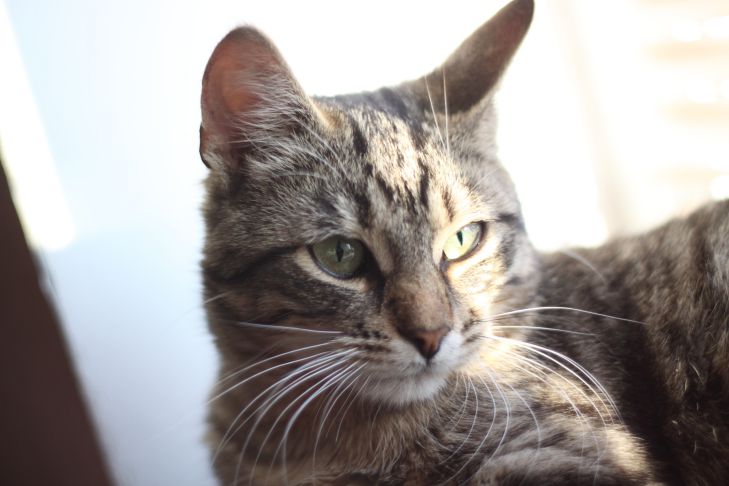The cat pressed its whiskers to its muzzle: what does this mean - a good or bad sign
The cat's face has clearly visible whiskers, which have a scientific name - "vibrissae".
These hairs are very important for fluffy creatures, as they are sensory organs.
Thanks to their whiskers, cats “explore” the objects around them and orient themselves well in space.
These "antennas" also have several other important functions.
A person can also tell about the pet’s mood by the position of a cat’s whiskers.

For example, if a cat presses its whiskers to its muzzle, then this is a bad sign.
What do whiskers pressed against a cat's muzzle mean?
This position of the hairs indicates that the pet is experiencing negative emotions.
Perhaps the cat was very scared of something.
Often, whiskers pressed against the muzzle indicate that the cat is seriously angry and ready to show aggression.
It is possible that the cat will attack someone.
If you see that your cat has pressed its whiskers to its muzzle, try to calm your pet down.
Remove everything that threatens your furry four-legged friend. Make the animal feel safe.
What do other whisker positions indicate?
If the whiskers are directed in different directions, then the pet is confused or angry for some reason.
If a cat has lowered its whiskers, the animal may be feeling sad.
The hairs pulled forward indicate the purr's interest. The animal is clearly in a friendly mood.
Relaxed whiskers are also a good sign. In this case, the pet is comfortable: it feels completely safe.
Earlier we told you what to do if your cat starts to behave badly.
